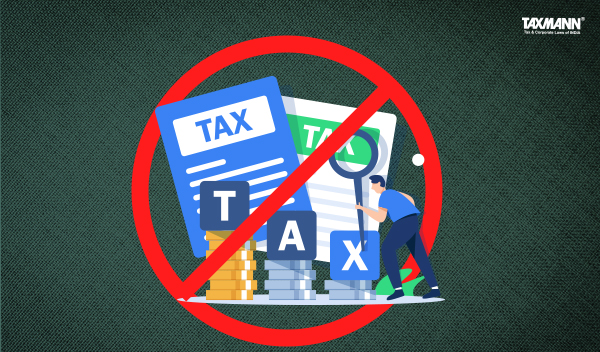No Penalty Shall Be Levied Since Department Has Not Been Able to Indicate Any Intention of Petitioner to Evade Tax | HC
- Blog|News|GST & Customs|
- 2 Min Read
- By Taxmann
- |
- Last Updated on 7 March, 2024

Case Details: Ms. Varun Beverages Ltd. v. State of UP - [2024] 160 taxmann.com 122 (Allahabad)
Judiciary and Counsel Details
-
- Shekhar B. Saraf, J.
- Shubham Agrawal for the Petitioner.
- C.S.C. for the Respondent.
Facts of the Case
In the present case, the petitioner challenged order of penalty passed under Section 129(3) and the order of the Appellate Authority on the ground that invoices contained the vehicle number in which the goods were being transported and only part B of the e-way bill could not be generated. It was also contended that the department had not been able to indicate any intention of the petitioner to evade tax.
High Court Held
The Honorable high Court noted that the petitioner had generated e-way bill and the invoice contained all the necessary details but it didn’t fill out Part B of the e-way bill. Furthermore, in the present case, this was not a sale that was being made to third party, but the goods were transported from one branch of the petitioner to another branch.
The Court also relied on the decision of M/S Roli Enterprises Vs. State of U.P. and Others wherein it was held that non filling up of Part ‘B’ of the e-Way Bill by itself without any intention to evade tax would not lead to imposition of penalty under Section 129(3). Therefore, the Court held that the defect was of a technical nature only and without any intention to evade tax, accordingly, the penalty imposed under Section 129(3) of the CGST Act was unsustainable.
Disclaimer: The content/information published on the website is only for general information of the user and shall not be construed as legal advice. While the Taxmann has exercised reasonable efforts to ensure the veracity of information/content published, Taxmann shall be under no liability in any manner whatsoever for incorrect information, if any.

Taxmann Publications has a dedicated in-house Research & Editorial Team. This team consists of a team of Chartered Accountants, Company Secretaries, and Lawyers. This team works under the guidance and supervision of editor-in-chief Mr Rakesh Bhargava.
The Research and Editorial Team is responsible for developing reliable and accurate content for the readers. The team follows the six-sigma approach to achieve the benchmark of zero error in its publications and research platforms. The team ensures that the following publication guidelines are thoroughly followed while developing the content:
- The statutory material is obtained only from the authorized and reliable sources
- All the latest developments in the judicial and legislative fields are covered
- Prepare the analytical write-ups on current, controversial, and important issues to help the readers to understand the concept and its implications
- Every content published by Taxmann is complete, accurate and lucid
- All evidence-based statements are supported with proper reference to Section, Circular No., Notification No. or citations
- The golden rules of grammar, style and consistency are thoroughly followed
- Font and size that’s easy to read and remain consistent across all imprint and digital publications are applied



 CA | CS | CMA
CA | CS | CMA
